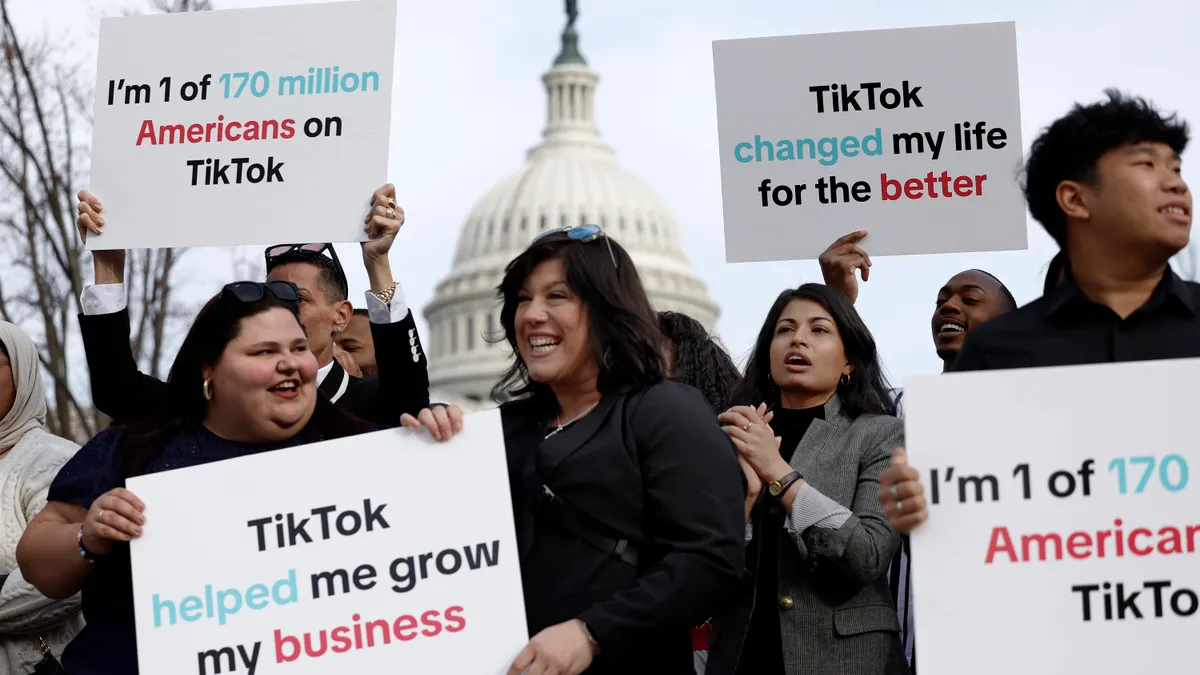Dive Brief:
- British lawmakers have accused Facebook of intentionally violating data privacy and anti-competition laws and called for new regulations, as detailed in a brief on the Digital, Culture, Media and Sport Committee's news site. The full report from the government body totals 108 pages and is the result of an 18-month investigation into the social media network's practices, including around spreading "fake news."
- The fiery-worded document recommends setting up a code of ethics for tech companies that would be overseen by an independent regulator, which would have the power to launch legal action against any companies that break the code. It also calls on the government to reform electoral communications laws and regulations related to foreign involvement in UK elections.
- Facebook and other social media platforms would be required to remove sources of disinformation and other harmful content or face a large fine or other punishment under the proposed parameters. The full report insists that companies like Facebook and their leadership must not be allowed to act like "digital gangsters" that consider themselves above the law.
Dive Insight:
After months of mounting scrutiny, Facebook now faces threats of regulatory action and potentially harsh fines on several fronts, which could seriously impact its business and, by extension, those of advertisers in the near future. European lawmakers have been proactive in trying to hold the social media giant accountable following a flurry of scandals surrounding both its data sharing practices, such as with Cambridge Analytica, and also how Facebook helps to spread disinformation online.
The new report from British parliament is particularly scathing and deflects the notion that many of these problems simply slipped through the cracks at Facebook. The committee targets Facebook as having used these practices as leverages to further its growth, including by charging higher advertising prices for some developers and creating an overall anti-competitive online environment.
Beyond Facebook's crises related to transparency, the growing focus on the company as an anti-trust issue could have a more significant impact on marketers that rely heavily on the platform for its massive global reach. Germany's antitrust regulator recently ruled that Facebook's entire advertising model exploits users by forcing them to consent with the company collecting data on which sites and apps they visit, where they shop and other information. The ruling suggests that Facebook's dominance and general lack of competition means that users aren't truly consenting to allow the platform to track them. The regulatory body is now prohibiting Facebook from continuing the practice, as reported in Wired.
Facebook is also reportedly negotiating what could be a record-setting, multi billion-dollar settlement with the FTC in the U.S. The agency is investigating whether the Cambridge Analytica scandal, which leaked data on tens of millions of users, violated a user consent agreement that it previously struck with Facebook.
Over the past several months, Facebook has released new features aimed at improving data privacy on the platform, such as by opening users' access to view how ads are targeted at them. Negative press hasn't turned away advertisers or users either, who helped to drive the platform's net income up 61% to a record $6.88 billion in Q4 2018. For the full year, Facebook's ad revenue leaped 38% year-on-year to $55 billion.














